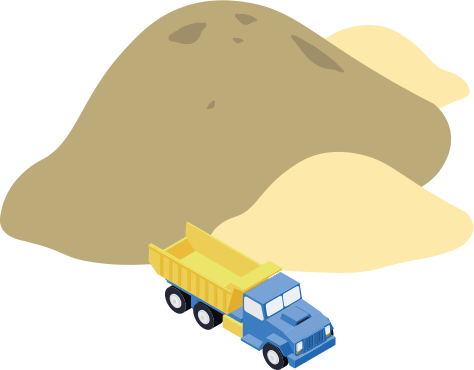The line made famous by Tom Cruise and Anthony Edwards, in the original Top Gun movie: “We have the need… the need for speed” very much applies to websites.
Did you know that after more than 20 years of secretiveness, Google in the last year revealed what the top 3 ranking factors are? They are now openly telling us what to do to get high rankings on searches.
And guess what #2 is?
That’s right.
Site speed.
Let me first explain what that is, and “how much speed do you need?” Then we’ll talk about how to achieve that.
THE PATIENT INTERNET USER: A MYTHICAL BEAST
Way back in about 1997, you were happy to have an internet connection at all. Waiting a full minute for an image to download? Hey, a year earlier you couldn’t download an image at all. Over time, internet connection speeds picked up and picked up. Now almost everyone has blazingly fast service. Many other technical advances have assisted the effort to deliver web pages faster – we’ll talk about some of those under “what to do about it.”
So, the user has gotten to expect and demand faster and faster, more instantaneous web page loading.
Maybe 10 years ago, the first surveys started showing that if you didn’t deliver a page fast enough, you started losing visitors. Initially it was small, but it was measurable. But that trend has just continued and continued, to a point where now, if a page takes more than 3 seconds to load, you might lose not a few percent of visitors – but a majority.
The whole pace of life and technology, certainly in the U.S., follows that same pattern. Amazon Prime delivery the next day, fast food drive through and a whole lot more, are part of the pattern.
And people are BUSY. They need things RIGHT NOW.
GOOGLE IS PAYING ATTENTION
Google is in the business of delivering to people what they are looking for. They are very aware that this includes SPEED. If the #1 search result has the absolute BEST information for what someone is looking for, but they are sitting there waiting for the page to load, they’ll never find that out. Because they’ll hit their back button and go on to the next appealing search result. So that makes Google users a bit less happy.
Google cares. They are in the business of making users happy. That’s how they get rich.
So, a few years ago Google started making noises that they would be making speed a ranking factor. Then a year or so later, they announced that it was a ranking factor, but it only affected the slowest sites.
Fast forward to 2019. Site speed is now the #2 most important factor in ranking.
WHAT AFFECTS SPEED
Everything between the user’s screen and the web server (where your website resides), affects site speed, at least for that user. Some of these are completely out of your control. By the same token, they probably affect every site the user visits:
FACTORS OUTSIDE YOUR CONTROL:
1. Speed of their computer.
2. What else their computer is doing at the time.
3. Speed and condition of their internet connection.
4. Issues with the internet service provider.
5. Issues with the internet itself (a major outage a few weeks ago took down about 1/3 of the internet for an hour or two.)
Two other areas affect site speed, and these you can do something about:
One of these is your website hosting provider – the company such as GoDaddy which provides the “web server” that your website resides on and connects it to the internet.
Finally, the website itself is a major factor.
ISSUES WITH THE WEBSITE HOSTING PROVIDER
Not all hosting services are the same. Worse than that, many if not most of them don’t make clear to you the most important things. That way they can deliver you mediocre service at a low price (or a high price!) and make a good profit.
Their network may be inadequate for the amount of traffic it has to handle. They may load up their servers with too many websites so yours doesn’t get the “attention” it needs for pages to load quickly. It may not be overloaded but you may be sharing server space with a bandwidth hog, leaving your website with scraps of time only. Or the server may simply not be set up correctly for your website.
If your website is running slow for no good reason, talk to your hosting provider. You may need to upgrade your hosting plan, they may need to make adjustments – or you may need a new provider.
THE WEBSITE ITSELF
Of course, a lot of the time the problem is with the website itself. We build most of our websites in WordPress. It’s a great platform, and it has become the default platform for a large percentage of websites. But it isn’t without faults, and one of those is it is inherently slow out of the box.
WordPress builds dynamically generated sites. That means every time a page is loaded, that page is being created on the fly by your web server. That involves executing a lot of code, and that can slow things down.
The good news is optimizing a WordPress site for speed is not rocket science. What to do is known – if its construction is sound in the first place.
A WordPress site can be built badly to a point where it just isn’t going to run fast. A lot of developers solve all WordPress construction issues by adding plugins. You end up with 50 or 60 plugins, it is going to slow the site down dramatically.
It can be a lot of work stripping all that back and doing the code efficiently. Better to get it done right in the first place.
CONTENT DELIVERY NETWORKS
Sometimes the routine actions to speed up a site don’t get you all the way to that 3 second load time. If that’s the case, using a CDN (“Content Delivery Network”) often solves the problem. A CDN stores a copy of the website on one or more other servers and your visitor gets his page delivered from that copy. Since these copies are static – they are already generated copies of all the pages – they don’t have to be created on the fly and that can speed things up dramatically.
The most widely used of these is “Cloudflare” and they have a free level of service that is adequate in most cases.
SATISFY THAT NEED FOR SPEED
So, there you go. This is of course not everything that to know about the subject, but plenty to get you well on the road to making sure that you have an adequately fast site yourself.
Just knowing this matters, helps a lot. Then follow this roadmap if you have issues and you’ll have happy website visitors.









